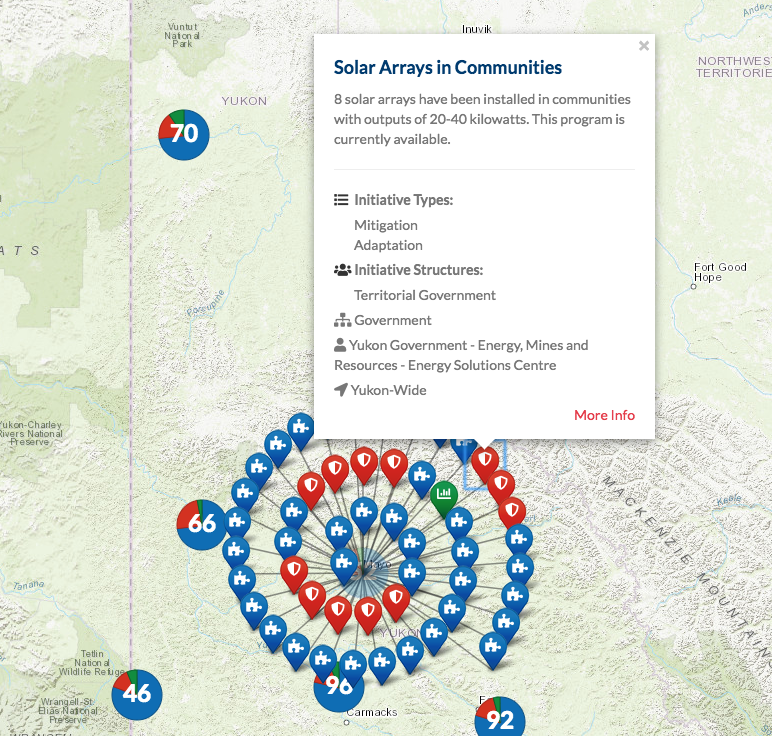AICBR, in collaboration with partners across Canada, have compiled information on food systems and climate change assets into two online, mapping inventories. The project seeks to meet the needs expressed by northerners for more northern-based information sharing and resources, which help to facilitate collaboration, networking and community-based program development and action on climate change. The inventory maps highlight initiatives, entities and services that relate to eight theme areas characterizing our food system and three theme areas characterizing climate change action.
Northern Food System:
(1) Consumption (& Access), (2) Transportation, (3) Processing & Storage, (4) Production & Harvesting, (5) Food Skills, Knowledge & Culture, (6) Food System Coordination, Policy & Networks, (7) Distribution & Exchange, and (8) Food Waste.
Climate Change Inventory:
(1) Adaptation, (2) Mitigation, and (3) Monitoring.
VIEW THE MAPS:
The issues of northern food insecurity and climate change are inextricably linked and highly complex. Northern food systems are made up of a mix of market, locally produced and harvested traditional foods, with a heavy reliance on southern routes of distribution. However, traditional food species and traditional harvesting practices are being threatened by climate change and food transportation/distribution systems are vulnerable to increasing natural disasters and unpredictable weather. Communities across the North have expressed urgent concerns over the fragility of these systems and their impact on human survival as climate change progresses. Advancing ecologically sustainable food systems, which are based in the North and are a reflection of each community or regions’ values and unique context, shows potential as a promising way to adapt to and mitigate against rapid climatic change.
The North is vast and diverse and is often ‘painted with the same brush’ when it comes to discussion and development on these issues; each territory and region are unique in their respective cultures, histories, demographics, geographies, and political/economic influences, however, when it comes to climate change and its impact on food security, the devastating impacts are shared across the North. Thus, there is a desire for more knowledge sharing between communities about what is working and how to build forward from it.
These maps are a product of two years of work by AICBR in partnership with Yukon Government’s Agriculture Branch and others (Climate Change Secretariat (Yukon Government), Food Secure Canada and University of Saskatchewan, among others), funded by Crown-Indigenous Relations and Northern Affairs Canada and Polar Knowledge Canada.
The overarching goal of this project is about characterizing food systems as a means for climate change adaptation, mobilizing existing knowledge as well as highlighting promising initiatives in order to inform policy and program development and inspire community action.
The Northern Food Systems and Yukon Climate Change Inventory Maps will help to mobilize community stories, share key asset information and identify strengths and areas of further work needed to promote sustainable northern food systems development as a means for adapting to climate change. A mixture of online and tangible knowledge products will be created and shared with communities and partners through workshops and webinars as well as other online and social platforms. An important focus of this project is also establishing and developing partnerships. AICBR has worked with a large network of partners over the years and has learned that key ingredients to developing successful, sustainable initiatives are collaboration, regular knowledge and information sharing, utilizing a strength-based approach, and harnessing existing resources and relationships. The project will also explore new partnerships and opportunities for amplifying the activities and contributing to broader northern food system and climate change work going on.


